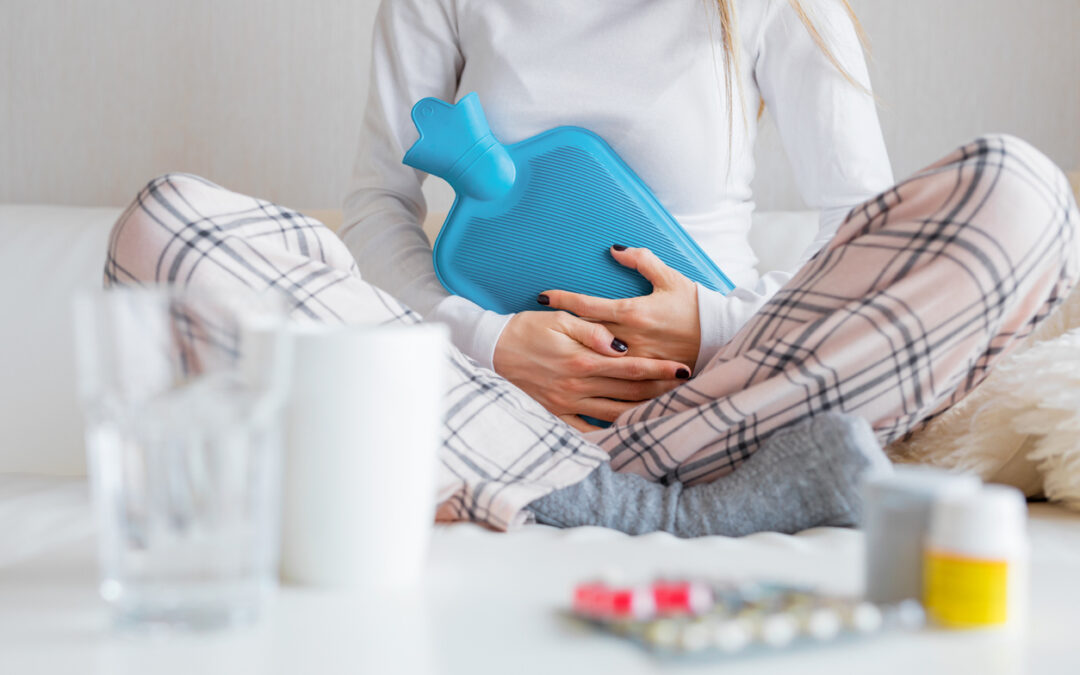Uterine fibroids are symptoms of a very complex condition. Despite the great amount of research that researchers carry out every year, it is still difficult to develop reliable theories on how uterine fibroids. However, doctors and researchers have developed methods and tips that can help women to manage uterine fibroids and their consequences, especially when it comes to one of the most common symptoms of fibroids: period pain.
The connection between uterine fibroids and pelvic pain
Uterine fibroids, as you may already know, are non-cancerous growths, made of muscles and connective tissues that can be developed on your uterus’ walls. They can range in size from 11 mm up to 18 cm and more. Consequently they can cause some consequences on uterus and reproductive system. In fact, the most important signs to look for, while diagnosing uterine fibroids, are heavy blood flows during menstruation, bleedings during your periods and excessive period pains.
Uterine fibroids do not necessarily always present these symptoms, even though they are quite common. In fact, they are caused by a large number of factors, such as
- Location of the fibroids, pressuring the wrong tissues and provoking excessive bleeding
- Contractility of the uterus
- Blood vessels, stimulated by the fibroids and increasing the blood flowing
- Prostaglandins
- Distortion of the uterus lining, which may be caused by the pressure of the fibroids
After discovering the causes connecting uterine fibroids and period pain, it is useful to learn the techniques that could be implemented in everyday lives, in order to manage the consequences of such excessive pain.
Everything you’re afraid to ask about uterine fibroids and period
Doctors and researchers have tried to find some reliable answers to every kind of questions that may arise between the patients, especially about menstruations and excessive period pain. Let’s see together which questions are the most asked and their explanations.
- How long does bleeding last with uterine fibroids?
Uterine fibroids may cause excessive and longer bleedings, during your menstrual cycle. For example, a menstrual period can last up to seven days on average. However, uterine fibroids may cause bleeding for a couple of days more, making period bleeding last even 9-10 days.
- How do you stop heavy bleeding from fibroids?
Some of the most effective methods for stopping heavy bleeding caused by fibroids are medication. Doctors may often describe a low dosage of birth control or other drugs methods to stop the heavy flows. In more drastic situations, they may also recommend surgeries, such as myomectomy, in order to remove the fibroids.
- What should I be careful about with fibroids and period?
Uterine fibroids can become difficult to manage during menstrual cycles, especially if you present some of the following symptoms: heavier bleedings during period, longer periods, bigger passing clots and bleeding between different periods. Ask to your doctor the best pratice that suits for your condition..
Uterine fibroids are still a medical condition with many unresolved mysteries. Despite the ever-growing research, doctors still struggle to develop some fixed theories on how this condition evolves. However, temporary solutions and preventive techniques have been developed, in order to improve the quality lifestyle of female patients, especially when it comes to its greatest consequence: excessive period pains.
Sitography

Recent Comments